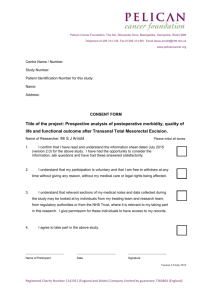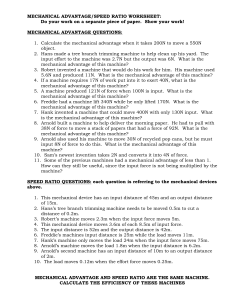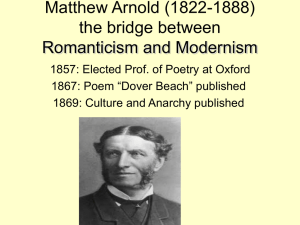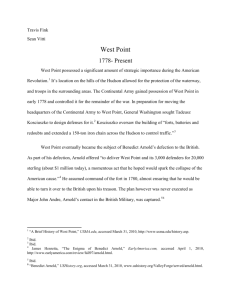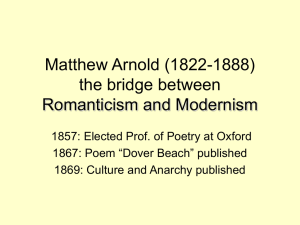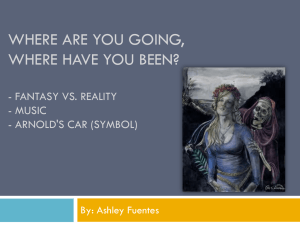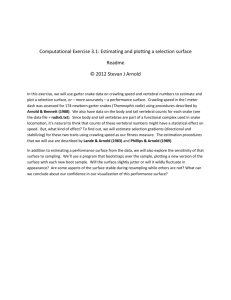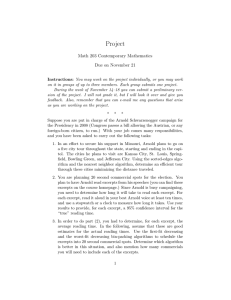Matt Arnold Handout - utk-ma-comp
advertisement
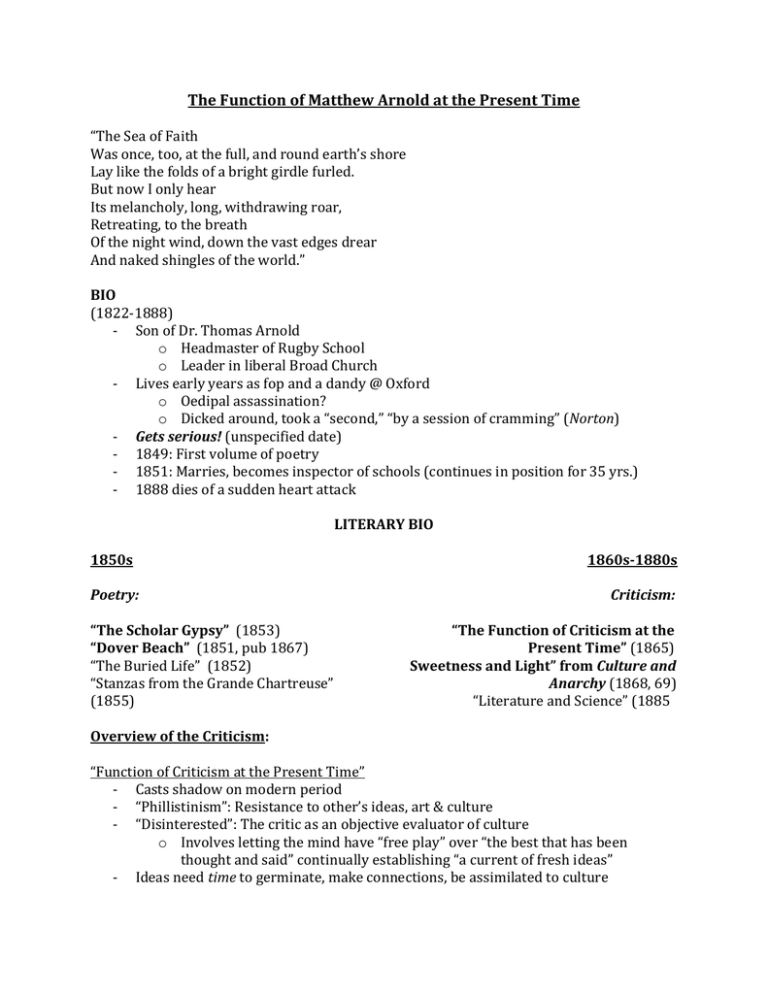
The Function of Matthew Arnold at the Present Time “The Sea of Faith Was once, too, at the full, and round earth’s shore Lay like the folds of a bright girdle furled. But now I only hear Its melancholy, long, withdrawing roar, Retreating, to the breath Of the night wind, down the vast edges drear And naked shingles of the world.” BIO (1822-1888) - Son of Dr. Thomas Arnold o Headmaster of Rugby School o Leader in liberal Broad Church - Lives early years as fop and a dandy @ Oxford o Oedipal assassination? o Dicked around, took a “second,” “by a session of cramming” (Norton) - Gets serious! (unspecified date) - 1849: First volume of poetry - 1851: Marries, becomes inspector of schools (continues in position for 35 yrs.) - 1888 dies of a sudden heart attack LITERARY BIO 1850s Poetry: “The Scholar Gypsy” (1853) “Dover Beach” (1851, pub 1867) “The Buried Life” (1852) “Stanzas from the Grande Chartreuse” (1855) 1860s-1880s Criticism: “The Function of Criticism at the Present Time” (1865) Sweetness and Light” from Culture and Anarchy (1868, 69) “Literature and Science” (1885 Overview of the Criticism: “Function of Criticism at the Present Time” - Casts shadow on modern period - “Phillistinism”: Resistance to other’s ideas, art & culture - “Disinterested”: The critic as an objective evaluator of culture o Involves letting the mind have “free play” over “the best that has been thought and said” continually establishing “a current of fresh ideas” - Ideas need time to germinate, make connections, be assimilated to culture - o lack of time = problems with Romantic and his contemporary period Great literature needs great ideas and/or great literature in order to arise Critics job is to pave the way for the artist o Sift through to support what is good, kill what is inferior o Critics job is to build culture “Sweetness and Light” - Short essay (2pp): compares humanist model of the poets and philosophers to the rigidity of Puritanism. o Arnold says Puritan worldview provides a narrow and limited ideal of humanity, for all the good work Puritans accomplish o He invites the reader to compare this limited ideal of humanity to the wealth the more humane “ideal of beauty, of sweetness and light, and a human nature complete on all its sides” Points of Contact: - Wordsworth a large influence on Arnold’s poetry, though he was not a fan of romanticism - Influenced the moderns: Dover Beach, in form and content anticipates struggles with faith/transcendence and breaking up of poetic form o Like Eliot and Auden, Arnold the poet shows a troubled individual in a troubled society - History of critical response: Taken on (negatively) by T.S. Eliot, and later by Harold Bloom; Northrop Frye attempted to develop Arnold’s ideas; Lionel Trilling wrote an important “appreciative critique” “Wandering between two worlds, one dead, The other powerless to be born, With nowhere yet to rest my head” (“Stanzas from the Grand Charteuse” 85-87) Women: Arnold’s is a man’s world: not negative towards women, but they are not central except as romantic interests (much more stoical…) Reference Sheet: Carroll, Joseph. “Arnold, Matthew.” The Johns Hopkins Guide to Literary Theory and Criticism. 2nd ed. Boston: JHU UP, 2005. Norton Anthology, The: English Literature, Major Authors. Ed. Stephen Greenblatt, et. al. 8th ed. New York: WW Norton & Co., 2006. Sadenwasser, Tim. Lecture Notes: Victorian & Modern Literature. Augusta State University (2006). Extra Stuff no one has time to care about: “Literature and Science” - The original humanities vs. business/science education debate - Takes on Thomas Henry Huxley (Huxley disparage dclassical learning) - Essentially, Arnold argues we need education in the literary, moral, etc. to help deal with all that science discovers (“the need in man for conduct, and…the need in him for beauty”) “Mr. Darwin… did not experience the necessity for two things which most men find so necessary to them—religion and poetry; science and the domestic affections [SEX], he thought, were enough”
